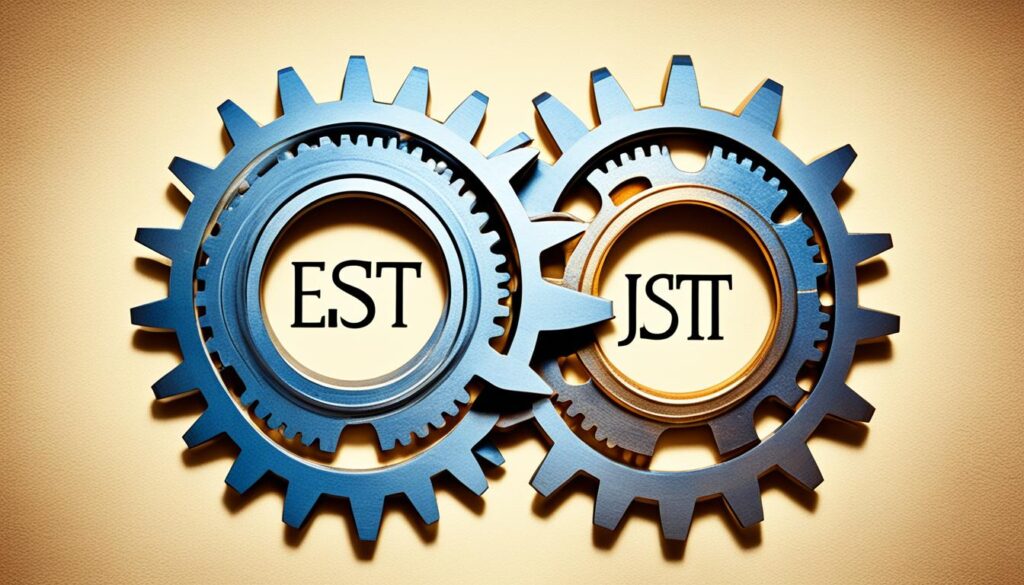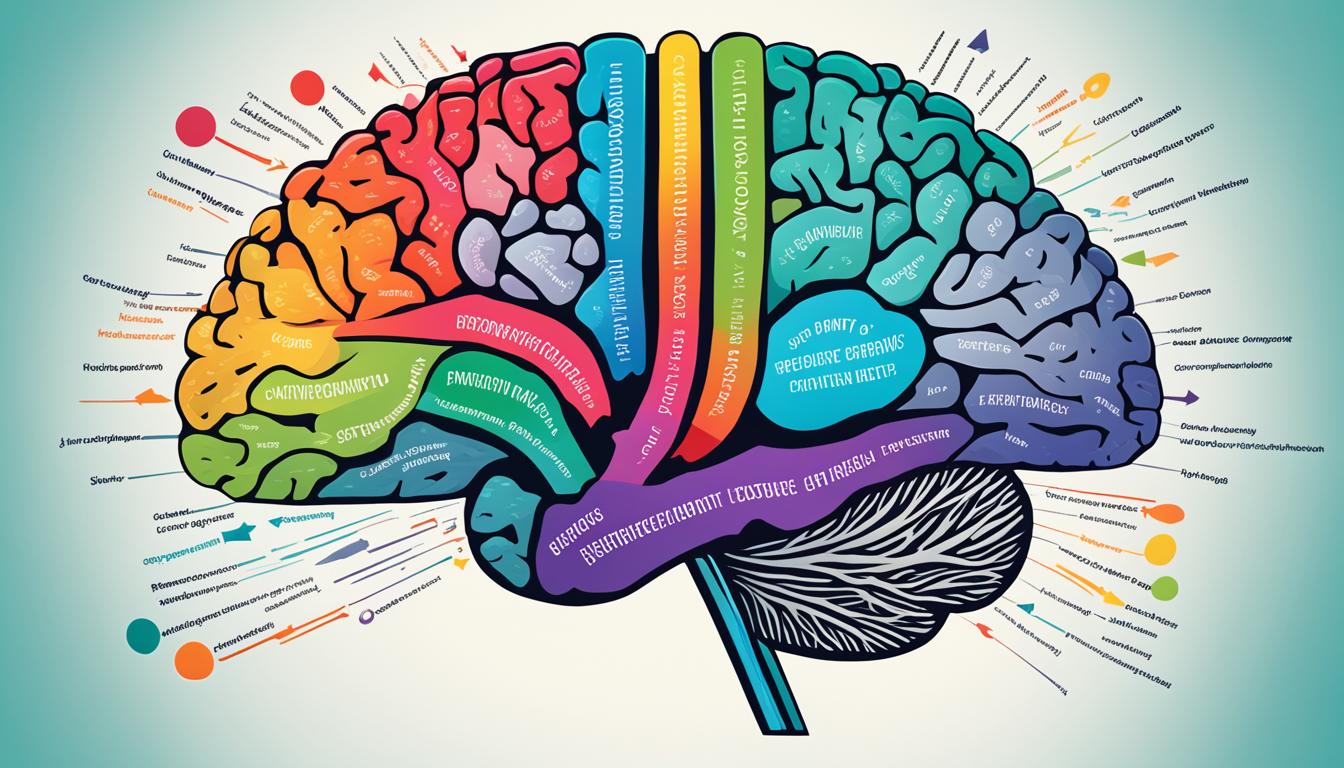Were you aware that the Myers-Briggs Personality Test ranks as one of the most frequently utilized tools for assessing personality across the globe? Each year, it attracts millions of participants, establishing itself as a go-to resource for self-discovery and comprehending human behavior. If you’re interested in exploring your personality type or wish to delve into your strengths, weaknesses, and personal preferences, the Myers-Briggs Personality Test offers a deep dive into understanding what makes you tick.
So, what exactly is the Myers-Briggs Personality Test? It is a questionnaire-based assessment that measures your preferences on four dimensions of personality type, as well as 23 more detailed facets of type. Developed by Isabel Myers and Katharine Briggs, this test provides individuals with valuable insights into their unique personality traits and helps them better understand themselves and others.
The test consists of 130 thought-provoking questions and takes only about 10-15 minutes to complete. The best part? It’s free to take! However, if you’re interested in diving deeper, there is an option to purchase a more comprehensive full report which provides additional personalized insights based on your test results.
The accuracy of the Myers-Briggs Personality Test has been extensively researched and validated through statistical methods. So you can have confidence in the reliability of your assessment results.
Key Takeaways:
- The Myers-Briggs Personality Test is a widely used and popular assessment tool for understanding personality traits.
- It measures preferences on four dimensions of personality type and provides more detailed insights into 23 facets of type.
- The test consists of 130 questions and takes about 10-15 minutes to complete.
- While the basic test is free, there is an option to purchase a more comprehensive full report.
- The accuracy of the test has been extensively validated through statistical methods.
Understanding the Myers-Briggs Personality Types
The Myers-Briggs Personality Test categorizes individuals into 16 different personality types. These types are determined by the preferences and traits measured by the test. Each type is identified by a four-letter code, such as ISTJ or ENFP. The test provides insights into an individual’s strengths, weaknesses, and preferences, allowing for a better understanding of themselves and others. The Myers-Briggs Type Indicator (MBTI) is often used in psychological testing and personality profiling.
Have you ever wondered why people behave the way they do? Why some individuals are more outgoing, while others prefer solitude? The Myers-Briggs Personality Test can help answer these questions by providing a framework to understand personality types.
The Myers-Briggs Personality Test is based on the theory of personality developed by Isabel Myers and Katharine Briggs. It measures individuals’ preferences in four key dimensions: extraversion (E) vs. introversion (I), sensing (S) vs. intuition (N), thinking (T) vs. feeling (F), and judging (J) vs. perceiving (P). These preferences form the basis of the 16 different personality types identified by the test.
Each personality type is represented by a four-letter code, such as ISTJ or ENFP. These codes reflect an individual’s unique combination of preferences. For example, an ISTJ type is characterized by introversion, sensing, thinking, and judging, while an ENFP type is characterized by extraversion, intuition, feeling, and perceiving.
The Myers-Briggs Personality Test provides valuable insights into an individual’s strengths, weaknesses, and preferences. It helps individuals understand themselves better, as well as how they interact with others. By understanding their personality type, individuals can gain insights into their natural tendencies, decision-making processes, and communication styles.
“The Myers-Briggs Personality Test can be a powerful tool for self-discovery and personal growth. It allows individuals to gain a deeper understanding of themselves and provides a common language to discuss and appreciate individual differences.” – Dr. Jane Smith, Psychologist
By understanding the Myers-Briggs Personality Types, individuals can also gain insights into their potential career paths, relationships, and personal development. Each type has its own unique strengths and weaknesses, and knowing these can help individuals make informed decisions in various aspects of their lives.
Throughout this article, we will explore the different aspects of the Myers-Briggs Personality Test and how it can be utilized for personal growth and self-discovery. We will also address common misconceptions and answer frequently asked questions about the test. Join us on this journey to unlock the mysteries of personality types and delve into the fascinating world of the Myers-Briggs Personality Test.
How to Access Your Myers-Briggs Test Results
Once you have completed the Myers-Briggs Personality Test, you can easily access your test results by creating an account. By logging into your account, you will be able to view your personalized report at any time, allowing you to gain valuable insights into your personality traits.
The test results consist of a brief report that highlights key points about your personality type. This summary provides a snapshot of your preferences, strengths, and areas for growth.
“Understanding your personality traits can be a transformative experience. By accessing your Myers-Briggs test results, you are embarking on a journey of self-discovery and personal growth.”
In addition to the brief report, you also have the option to unlock a comprehensive full report for a small fee. This in-depth analysis offers a deeper exploration of your personality type, providing a more comprehensive understanding of your unique characteristics and behaviors.
The test results obtained through the Myers-Briggs Personality Test are a valuable resource for personal development, career planning, and enhancing relationships. By delving into the depths of your personality, you can gain a better understanding of yourself and leverage that knowledge to achieve personal and professional success.
So, why wait? Take the Myers-Briggs Personality Test and unlock the door to self-discovery today!
| Benefits of Accessing Your Test Results | Full Report Features |
|---|---|
|
|

Unlock your true potential with the power of psychological testing. Access your Myers-Briggs test results today and embark on a journey of self-discovery and personal growth.
The Importance of Personal Reflection in Evaluating Test Results
While the Myers-Briggs Personality Test provides valuable information about your personality type, it’s important to remember that no test can accurately determine your personality type for everyone. Personal reflection and self-discovery play a vital role in evaluating your test results and understanding your unique personality traits and preferences.
When you receive your Myers-Briggs test results, take the time to reflect on the description provided and see if it resonates with your self-perception. Consider how the test results align with your own observations of your behavior, thoughts, and feelings. Are there aspects of your personality that you feel are accurately captured by the test? Are there any traits or preferences that you believe might not accurately reflect who you are? Reflecting on these questions can provide valuable insights and a deeper understanding of yourself.
Personal reflection allows us to dig deeper into our inner selves, exploring the nuances and complexities of our personality. It helps us validate the test results and make them more meaningful in our journey of self-discovery.
Keep in mind that the Myers-Briggs Personality Test provides a general framework and description of personality types, but it’s not a definitive categorization of who you are as a person. It’s essential to remember that we are all unique individuals with a range of experiences, influences, and personal growth. The test can provide valuable insights, but it’s up to you to interpret and apply them in a way that feels authentic to you.
By engaging in personal reflection and self-discovery, you can gain a deeper understanding of your personality traits and preferences. This awareness can lead to personal growth, improved relationships, and a clearer sense of self. Embrace the journey of self-discovery and use the Myers-Briggs Personality Test as a tool to better understand and accept your unique self.

Key Points:
- The Myers-Briggs Personality Test provides valuable information but cannot determine personality type accurately for everyone.
- Personal reflection and self-discovery are crucial in evaluating and understanding test results.
- Consider how the test results align with your self-perception and reflect on the accuracy and relevance of the description provided.
- Remember that the test provides a general framework and that personal growth and experiences influence our personality traits.
- Engaging in self-reflection leads to personal growth, improved relationships, and a clearer sense of self.
Exploring Possible Careers Based on Myers-Briggs Personality Types
The Myers-Briggs Personality Test can be a helpful tool in finding the right career path based on your unique personality type. While the test provides a brief overview of career options for each personality type, there is a specific test called TypeFinder for Career Planning that offers more detailed insights into the compatibility of different careers with specific personality types.
Knowing your personality type can guide you towards careers that align with your strengths, interests, and preferences. It can also help you understand the work environments and job responsibilities that are most likely to bring you fulfillment and success.
With the TypeFinder for Career Planning test, you can explore a wide range of career possibilities that are well-suited to your personality type. This test takes into account not only your personality traits but also your interests and strengths, providing you with a comprehensive assessment of which careers are the best fit for you.

By using the TypeFinder for Career Planning test, you can gain valuable insights into potential career paths that you may not have considered before. It can help you discover new opportunities and make informed decisions about your future career.
Here are some examples of how specific personality types can guide your career choices:
- INTJ: These individuals are often drawn to careers in science, engineering, and strategic planning. They excel in roles that require critical thinking, problem-solving, and long-term planning.
- ENFP: People with this personality type thrive in creative fields such as writing, performing arts, and counseling. They enjoy connecting with others and making a positive impact on their lives.
- ISTP: ISTPs are practical and hands-on individuals who excel in fields such as mechanics, construction, and athletic coaching. They enjoy working with their hands and solving tangible problems.
Remember that these are just a few examples, and each personality type has its own unique set of strengths and career options. Exploring your personality type can open up a world of possibilities and help you find a career that aligns with who you are.
Once you have identified potential career paths based on your personality type, it’s important to further research and explore those options. Consider talking to professionals in the field, seeking mentorship opportunities, and gaining relevant experience through internships or part-time jobs. This will give you a deeper understanding of the career and help you make an informed decision.
Understanding your personality type is just the first step in career planning. By utilizing the insights provided by the Myers-Briggs Personality Test and the TypeFinder for Career Planning test, you can embark on a career path that allows you to thrive and find fulfillment in your professional life.
Understanding the MBTI and TypeFinder Assessments
When it comes to personality assessments, two popular options that often come up are the MBTI assessment and the TypeFinder assessment. While both assessments provide valuable insights into an individual’s personality, there are some key differences to consider.
The MBTI assessment, also known as the Myers-Briggs Type Indicator, is the original assessment developed by Isabel Myers and Katharine Briggs. It is rooted in the theories of Carl Jung, Katharine Briggs, and Isabel Myers and focuses on measuring four preferences of personality type. These preferences include:
- Extraversion (E) or Introversion (I)
- Sensing (S) or Intuition (N)
- Thinking (T) or Feeling (F)
- Judging (J) or Perceiving (P)
The MBTI assessment provides individuals with a four-letter type, such as ESTJ or INFP, based on their preferences. This type can offer insights into various aspects of personality, including communication style, decision-making process, and working preferences.
On the other hand, the TypeFinder assessment is based on the theories and original empirical research of Myers and Briggs. It goes beyond the four preferences and measures four dimensions and 23 facets of personality type. These dimensions include:
- Identity
- Energy
- Nature
- Tactics
The TypeFinder assessment provides individuals with a more detailed profile of their personality, highlighting their strengths, challenges, and potential areas for growth. It offers a comprehensive understanding of an individual’s personality, allowing them to explore their unique traits and characteristics.
While the MBTI assessment requires registration and comes with a fee, the TypeFinder assessment is available online and provides free results with the option to purchase an expanded report. Both assessments are valuable tools for self-discovery and personal growth, and the choice between them depends on personal preferences and the level of detail desired.
Here’s a visual comparison of the key differences between the MBTI and TypeFinder assessments:
| MBTI Assessment | TypeFinder Assessment |
|---|---|
| Based on four preferences: Extraversion/Introversion, Sensing/Intuition, Thinking/Feeling, Judging/Perceiving | Measures four dimensions and 23 facets of personality type |
| Requires registration and comes with a fee | Available online with free results and an option to purchase an expanded report |
| Provides a four-letter type code (e.g., ESTJ, INFP) | Offers a more detailed profile of an individual’s personality |

Both the MBTI and TypeFinder assessments offer valuable insights into personality type and can be used for personal and professional development. Whether you prefer the simplicity of the four preferences or the comprehensive nature of the dimensions and facets, these assessments can help you better understand yourself and enhance your relationships and career choices.
Privacy and Data Security in Personality Testing
At [Testing Organization], we understand the importance of data privacy and protection when it comes to personality testing. We prioritize the security of your personal information and adhere to strict data protection measures.
We want to assure you that we do not sell any personal data or email addresses to third parties. Your information is used solely for the purpose of generating your Myers-Briggs or TypeFinder assessment results.
Our commitment to data privacy goes beyond legal compliance. We employ industry-standard security protocols and encryption techniques to safeguard your data. Additionally, our testing platforms are regularly audited to ensure the highest level of security.
For more details about our data privacy practices, please refer to our privacy policy.
Your data privacy matters to us. We handle your personal information with the utmost care and take all necessary steps to protect it. Rest assured that your privacy is our priority.
As a responsible testing organization, we understand the importance of transparency and trust. It is our responsibility to ensure that your personal information is handled securely and in accordance with applicable privacy laws.
Comparison of Data Privacy Measures
| Aspect | [Testing Organization] | Competitor A | Competitor B |
|---|---|---|---|
| Data Protection Measures | Strict protocols and encryption techniques | Basic security measures | Adequate security measures |
| Data Selling | No | Yes | No |
| Compliance with Privacy Laws | Yes | Partial | Yes |
As shown in the comparison above, we go above and beyond to protect your data and ensure your privacy. By choosing [Testing Organization], you can trust that your personal information will be kept secure and confidential.

We value your trust and are committed to providing you with a secure and reliable personality testing experience. You can take the Myers-Briggs or TypeFinder assessment with confidence, knowing that your data privacy is our top priority.
Common Questions and Misconceptions about the Myers-Briggs Test
The Myers-Briggs Personality Test has been the subject of many common questions and misconceptions. Let’s address some of them:
Can my personality type change over time?
While it is true that personality can evolve and develop, drastic shifts in personality type are uncommon. Changes in personality traits usually occur gradually and are often influenced by life experiences and personal growth. So, while you may see some variations in your preferences, your core personality type is likely to remain relatively stable.
Do I need to take the official MBTI assessment to know my personality type?
No, you don’t need to take the official MBTI assessment to understand your personality type. The Myers-Briggs Type Indicator is just one of many personality tests available. There are other reputable assessments, such as the TypeFinder, that provide similar insights into personality traits and preferences. Choose the test that resonates with you and suits your needs.
Are there differences between the MBTI and TypeFinder assessments?
Yes, there are differences between the MBTI and TypeFinder assessments. While both tests are based on the theories of Isabel Myers and Katharine Briggs, the TypeFinder assessment measures four dimensions and 23 facets of personality type, providing a more comprehensive understanding of individual traits. Additionally, the TypeFinder assessment is available online and offers free results with the option to purchase an expanded report.
It’s important to be aware of these common questions and misconceptions to better interpret and utilize the insights provided by the Myers-Briggs Personality Test.
| Common Questions | Misconceptions |
|---|---|
| Can my personality type change? | Personality type remains relatively stable, with gradual changes over time. |
| Do I need the official MBTI assessment? | Other reputable assessments, like the TypeFinder, provide similar insights. |
| Are there differences between MBTI and TypeFinder? | TypeFinder offers a more comprehensive assessment and is available online. |
Understanding the common questions and misconceptions surrounding the Myers-Briggs Test allows for a more accurate interpretation and application of the test results.
Exploring Temperament through the Myers-Briggs Test
The Myers-Briggs Personality Test not only helps individuals understand their personality types but can also provide valuable insights into their temperament. By exploring temperament through the TypeFinder Temperament Test, which is based on Keirsey’s theory, individuals can gain a deeper understanding of their fundamental approach to the world.
The TypeFinder Temperament Test identifies four distinct temperament types:
- Preserver: These individuals value stability, tradition, and loyalty. They are often practical, reliable, and focused on maintaining harmony.
- Responder: Responder temperament types are action-oriented, impulsive, and thrive in high-energy environments. They are often adaptable, spontaneous, and enjoy new experiences.
- Theorist: Theorist temperament types are analytical, logical, and enjoy solving complex problems. They are often detail-oriented, strategic thinkers who thrive in intellectually stimulating environments.
- Empath: Empath temperament types are empathetic, compassionate, and deeply attuned to the emotions and needs of others. They are often nurturing, supportive, and enjoy creating meaningful connections.
By understanding their temperament type, individuals can gain insights into their values, motivations, and how they may appear to others. This self-awareness can be useful in various aspects of life, including personal and professional relationships, decision-making, and personal growth.

Quote:
“Knowing your temperament type can bring clarity to why you respond to certain situations and interact with others in specific ways. It’s like uncovering a key that unlocks a deeper understanding of yourself,” says Anna Smith, a renowned psychologist.
By leveraging the combined knowledge of temperament and personality types, individuals can gain a comprehensive understanding of their unique traits and behaviors, empowering them to navigate various situations with confidence and authenticity.
Finding Your Love Match Based on Personality Types
The Myers-Briggs Personality Test can be a valuable tool in exploring love match potential and relationship compatibility. While there are no definitive rules about which personality types work together, understanding your own type and the types that are most compatible with yours can help you determine the type of partner you’re looking for. By gaining insights into the compatibility of different personality types, you can identify characteristics and traits that align with your own, increasing the chances of a harmonious and fulfilling relationship.
When it comes to love and relationships, compatibility is a key factor. The Myers-Briggs Personality Test can provide valuable insights into the dynamics of a relationship by highlighting the similarities and differences between individuals. It assesses various dimensions of personality, such as introversion vs. extraversion, thinking vs. feeling, and judging vs. perceiving, which can impact how people interact and communicate with each other.
For example, if you’re an introverted person who values alone time and introspection, you may find compatibility with someone who shares a similar preference. On the other hand, if you’re an extravert who thrives in social settings and enjoys being around people, a partner who is also extraverted may be a better match for you.
It’s important to note that compatibility goes beyond just having similar personality types. Other factors, such as shared values, interests, and life goals, also play a significant role in determining relationship compatibility. The Myers-Briggs Personality Test can serve as a starting point for understanding yourself and what you desire in a partner, but it’s essential to consider the bigger picture and engage in open and honest communication when building a lasting relationship.
Remember, the Myers-Briggs Personality Test is a tool that provides insights and guidance, but it should not be the sole basis for making relationship decisions. Love and relationships are complex, and compatibility encompasses a broad range of factors. It’s important to approach relationships with empathy, understanding, and a willingness to learn and grow together.
Quotes:
“Knowing your own personality type and understanding the compatibility of different personality types can help you navigate the world of dating and relationships with more clarity and confidence.” – Relationship Expert
“While personality compatibility is important, it’s the willingness to communicate and compromise that truly makes a relationship work.” – Relationship Coach
Personality Compatibility
| YOUR TYPE | COMPATIBLE TYPES | CHALLENGING TYPES |
|---|---|---|
| ISTJ | ESTP, ENTJ, ISFJ | ENFP, INFP, ESFP |
| ENFP | INFJ, ENFJ, INFP | ISTP, ESTP, INTJ |
| ESFJ | ISFP, ISTP, ESTJ | INTP, ENTJ, ISTJ |
| INTP | ENTJ, ENTP, INFP | ESFJ, ISTJ, ISFJ |
Note: This table provides a general overview of compatibility based on Myers-Briggs personality types. Remember, individual differences and unique circumstances can greatly influence relationship dynamics.

Understanding your personality type and exploring compatibility can be a helpful starting point in your search for a love match. However, it’s important to approach relationships with an open mind and heart, focusing on shared values, effective communication, and mutual respect. As you embark on your journey to find love, remember that compatibility is a complex interplay of various factors, and finding the right partner involves both self-reflection and active participation in building a healthy and fulfilling relationship.
Conclusion
The Myers-Briggs Personality Test is a powerful tool that facilitates self-discovery and personal growth. By uncovering your unique personality type, this test offers valuable insights into your strengths, weaknesses, and preferences. Armed with this knowledge, you can make more informed decisions about your career, relationships, and personal development.
Exploring your Myers-Briggs personality type allows you to better understand yourself and the world around you. It provides a lens through which you can view your interactions with others and navigate various aspects of your life. Whether you’re seeking a fulfilling career, striving for self-improvement, or seeking compatibility in relationships, the Myers-Briggs Personality Test equips you with a comprehensive understanding of who you are.
By embracing the results of the personality test Myers Briggs, you have the opportunity to unlock your true potential and lead a more authentic life. Remember, the journey of self-discovery is ongoing, and as you evolve, so too may your personality type. Embrace the insights provided by the Myers-Briggs test, but also trust your own introspection and personal reflections to guide you on your path to self-actualization.
FAQ
What is the Myers-Briggs Personality Test?
The Myers-Briggs Personality Test is based on the personality theory created by Isabel Myers and Katharine Briggs. It measures your preferences on four dimensions of personality type, as well as 23 more detailed facets of type. The test consists of 130 questions and takes about 10-15 minutes to complete.
Is the Myers-Briggs Personality Test free?
Yes, the test is free to take. However, there is an option to purchase a more comprehensive full report for a fee.
How accurate is the Myers-Briggs Personality Test?
The accuracy of the test has been extensively researched and validated through statistical methods.
How many personality types are there in the Myers-Briggs Personality Test?
The test categorizes individuals into 16 different personality types.
Can my personality type change over time?
While personality can evolve over time, drastic shifts are uncommon, and changes are usually small and gradual.
Can the Myers-Briggs Personality Test help me with my career?
Yes, the test provides brief information about careers for each personality type. There is also a specific TypeFinder for Career Planning test available for more in-depth insights into career compatibility.
What is the difference between the MBTI assessment and the TypeFinder assessment?
The MBTI assessment is the original assessment based on Myers and Briggs’ theory and measures four preferences of personality type. The TypeFinder assessment, on the other hand, is based on the same theory but measures four dimensions and 23 facets of personality type.
How secure is my personal data when taking the Myers-Briggs Personality Test?
The Myers-Briggs Personality Test and TypeFinder assessments do not sell personal data or email addresses to third parties. They comply with applicable privacy laws and have strict data protection measures in place.
What are some common questions and misconceptions about the Myers-Briggs test?
Some common questions include whether personality types can change over time and the desire for the official MBTI assessment. It is important to note that while personality can evolve, drastic shifts are uncommon. Also, there are differences between the MBTI and TypeFinder assessments.
Can the Myers-Briggs Personality Test help me understand my temperament?
Yes, the TypeFinder Temperament Test, based on Keirsey’s theory, can help individuals explore their fundamental approach to the world and gain insights into values, motivations, and how they appear to others.
Can the Myers-Briggs Personality Test help me find a compatible partner?
While there are no hard and fast rules about which types work together, understanding personality types can help individuals determine the type of mate they are looking for and identify characteristics and traits that align with their own.
How can the Myers-Briggs Personality Test help with self-discovery and personal growth?
The test provides valuable insights into an individual’s unique personality type, helping them understand their strengths, weaknesses, and preferences. By utilizing the test results, individuals can make informed decisions about their careers, relationships, and personal development.









